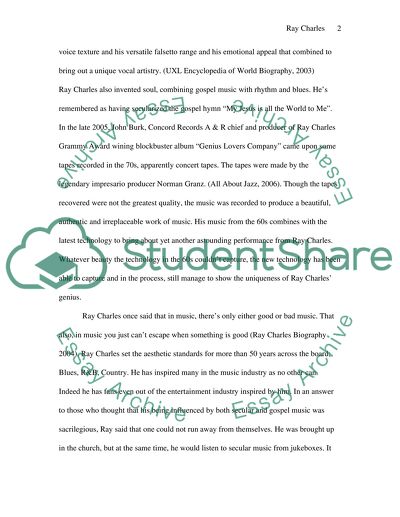Cite this document
(Ray Charles' Influence on Music in 1960's Essay, n.d.)
Ray Charles' Influence on Music in 1960's Essay. https://studentshare.org/music/1528912-how-critical-and-cultural-perspectives-influenced-a-specific-music-artistgenre-of-the-1960s
Ray Charles' Influence on Music in 1960's Essay. https://studentshare.org/music/1528912-how-critical-and-cultural-perspectives-influenced-a-specific-music-artistgenre-of-the-1960s
(Ray Charles' Influence on Music in 1960'S Essay)
Ray Charles' Influence on Music in 1960'S Essay. https://studentshare.org/music/1528912-how-critical-and-cultural-perspectives-influenced-a-specific-music-artistgenre-of-the-1960s.
Ray Charles' Influence on Music in 1960'S Essay. https://studentshare.org/music/1528912-how-critical-and-cultural-perspectives-influenced-a-specific-music-artistgenre-of-the-1960s.
“Ray Charles' Influence on Music in 1960'S Essay”. https://studentshare.org/music/1528912-how-critical-and-cultural-perspectives-influenced-a-specific-music-artistgenre-of-the-1960s.


